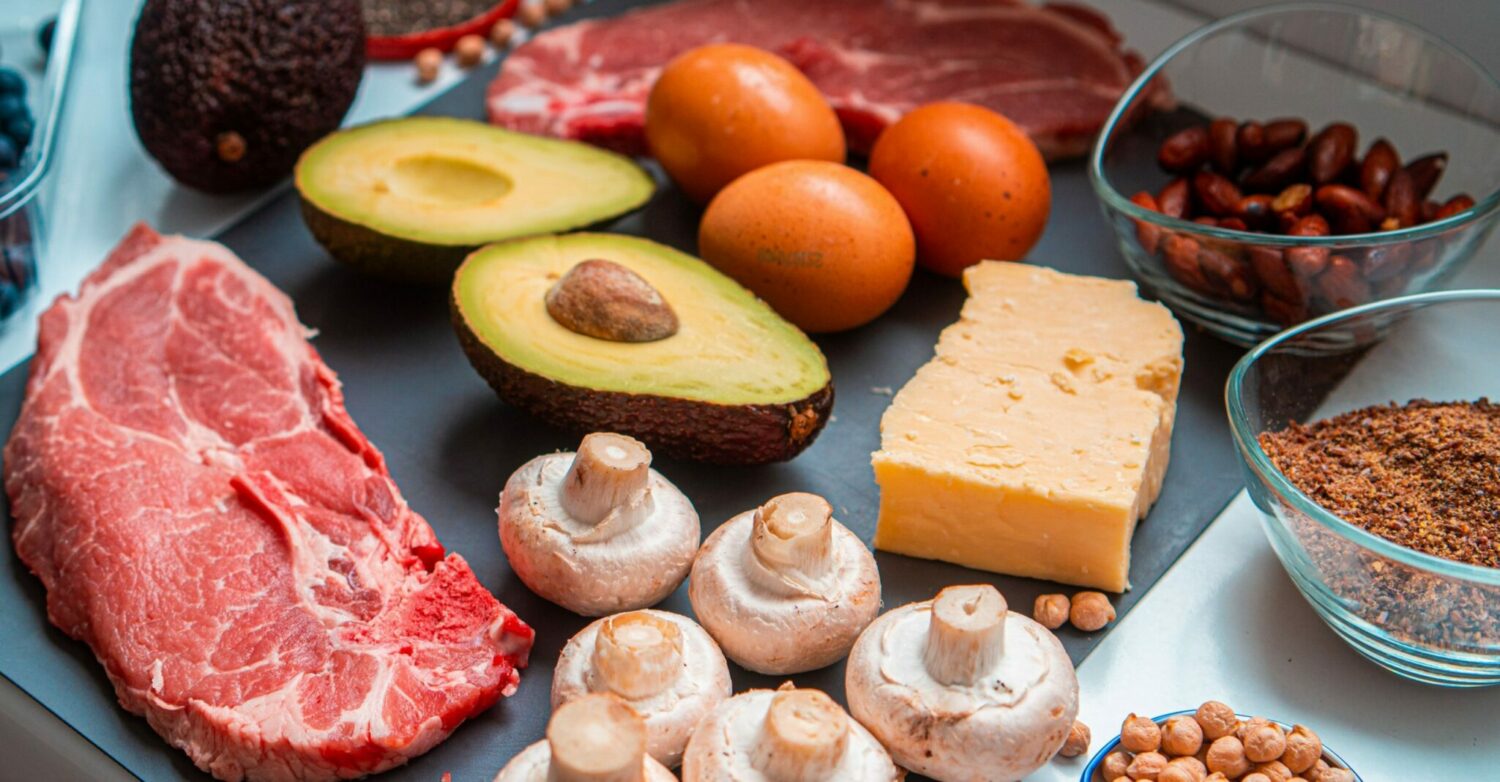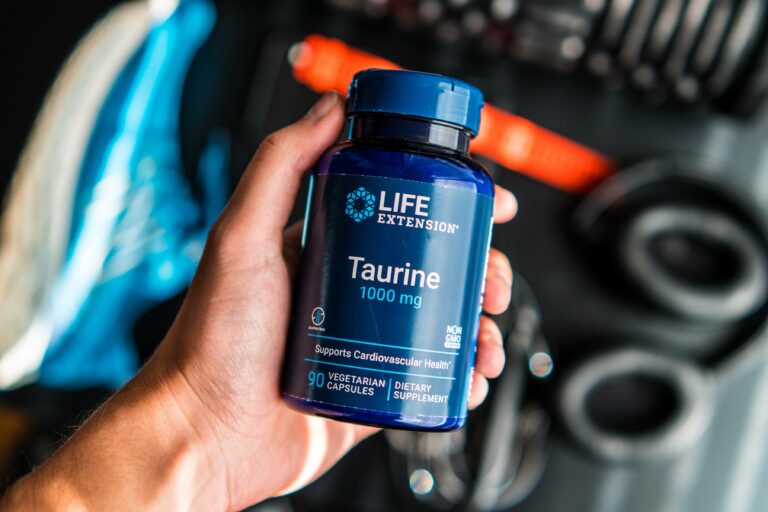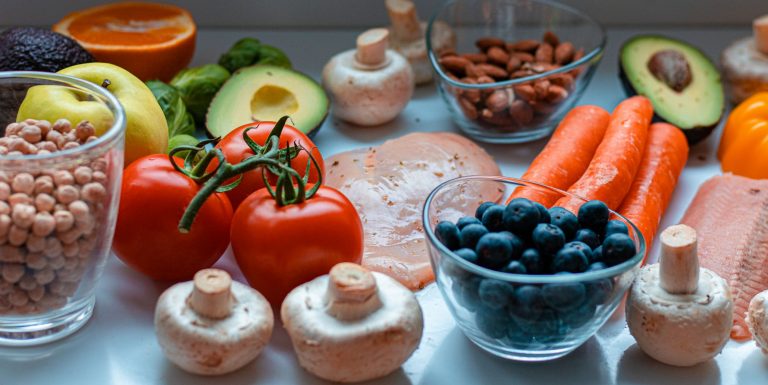Healthy Fats for Brain Health: Keto, Good vs Bad Fat, Omega 3, and Nutrients for Brain
The importance of healthy fats for brain health is certain. You might be surprised to find out that fats are absolutely essential for your brain function. Cognition, Memory, Neuroprotection, Focus, Alertness, you name it. Ready to optimize your brain performance?
One important question is which fats are good for your brain. Besides the best dietary sources of healthy fats, omega 3 vs. omega 6 ratio, you’ll also find some important brain-supportive nutrients, the role of cholesterol in hormone secretion, and how healthy fats aid in neuroprotection.
The Fatty Structure of The Brain
It is no secret that the brain is a vital organ. It is the extremely complex organ which controls most functions in our body. From temperature regulation, mood and neurotransmitter secretion, thinking, memory, focus, movement, up to the speed at which your heart pumps out blood.
Your brain is the fattiest organ in your body, made up of around 60% fat. In terms of weight, water makes up more than two-thirds, while brain lipids only make for 10-12% of total brain weight.
For optimal brain function, many components of the brain and different neural cells need to work in sync. Your brain (and nervous system) contains neurons, astrocytes, glia, oligodendrocytes, and microglia.
This is where healthy fats come into play. Since they make up a large portion of the brain, they’ll affect the way the brain functions and ages. Optimally, most people would benefit from consuming more omega 3 rich foods, considered brain-supportive healthy fats.
Sugar vs. Fats for Brain Fuel
Both glucose and fats can provide fuel for the brain. The brain can utilize glucose or ketones for energy, but the energy is different. Glucose is the main source of energy for the brain. In sugar-starvation mode, the brain can function on ketones, which occurs with keto diet or intermittent fasting. (1)
To say that glucose isn’t important, and we can live completely off of fats, is simply not true. Even if you don’t eat carbs, the liver will break down protein (amino acids) to create glucose, and support some parts of your brain, through a process called gluconeogenesis.
That being said, what difference does it make whether we primarily fuel our brains on glucose or ketones?
As posted in Scientific American, Ketones offer more efficient fuel for the brain, per unit of oxygen, than glucose. It creates less oxidative stress. Ketones can also improve the function of your mitochondria, which means even more energy. (2)
- Ketogenic diets have also been shown to increase the activity of glutathione peroxidase, which fights against oxidative stress. (3)
- Keto-eaters have also stated feeling positive effects of ketones, in terms of brain function. The one that stands out is alertness improvement and reduction in energy crashes.
We can’t neglect the importance of glucose, too. Eating carbohydrates will provide your brain with energy, support its functions, improve short-term memory, attention span, and performance. (4)
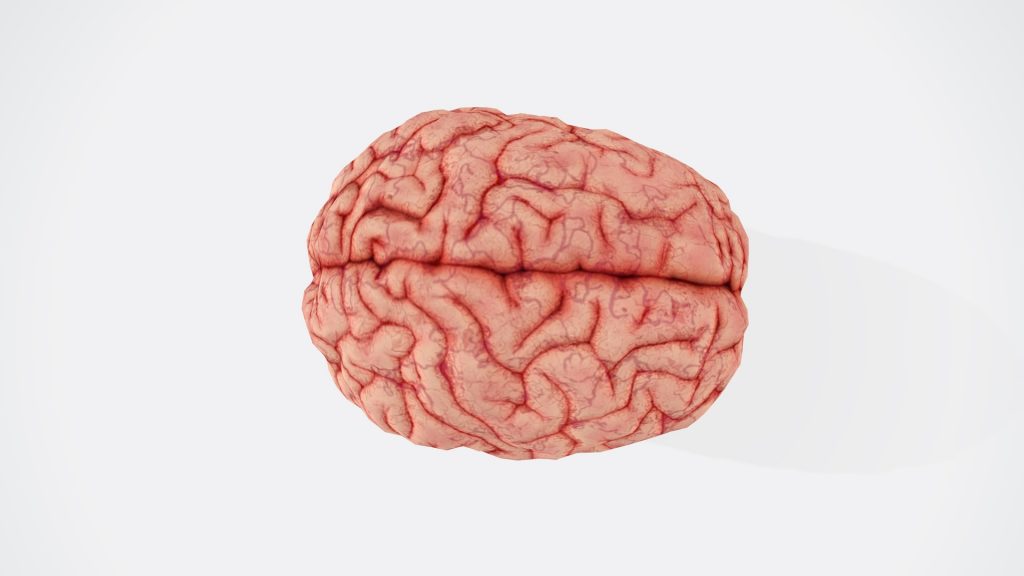
Simple Sugar and Brain Performance
Just as fueling your brain with bad sugar, you can have even more detrimental effects fueling you’re brain with unhealthy fats. Trans fats in processed meat, candies, frozen pizza, French fries, doughnuts, sausage, ham, bacon,.. can do even more damage.
With healthy fats fueled brain, benefits range from reducing inflammation, improving alertness, sustainable energy, up to improved learning + neuroprotection.
With a glucose-fueled brain, we can be faster, sharper, have better short-term memory, get a quick mood boost, etc. Too many simple sugars will cause energy crash, asking for a refill. This is why you’d want more complex carbohydrates, that give you the energy that lasts.
Pro Tip
Glucose is the base of energy creation for the brain, ketones serve as an alternative source. A brain that runs on ketones (healthy fats) may have better energy efficiency, stability, alertness, neuroprotection, and less inflammation. On the other hand, glucose-fueled brains can be sharper, clearer, faster, better at short-term memory and attention span. Point is, neither one is superior, but they’re better at different things.
The Importance of Fats for Brain Health
Healthy fats are essential for maintaining the integrity of the brain. They also provide support for the maintenance, regeneration, and development of the complex nervous system structure including all its cells, mediators, neurotransmitters, hormones, etc.
Your brain needs (and is made up) of both saturated and unsaturated fats. Lipids are important to create a balance between the fluidity and structural integrity of the brain.
Fats are therefore involved in supporting many brain functions. Here’s a quick list:
- Fats are a source of fuel (energy) for your brain, although glucose is important too.
- Unsaturated fats can reduce inflammation and aid in neuroprotection
- Fats are essential for the creation of hormones like Testosterone, Estrogen, and Progesterone
- Fats provide the structure for your brain (and nervous system), they are essentially building blocks for the brain.
- Fats are crucial for Cholesterol synthesis, an important precursor for sex hormones, bile acid, and Vitamin D.
- Fats are essential for the secretion of neurotransmitters, chemical messengers involved in neural signaling. (dopamine, GABA, glutamate…)
- Brain-fueled on fats may be more alert, less reactive, have better memory, and have fewer energy crashes or sleepiness.
- Fats are very important in mediating processes involved in learning, brain adaptation (neuroplasticity), and memory.
Fats, Cholesterol and Hormone Creation
Fats play a major role in the creation of hormones, temperature regulation, cholesterol synthesis, cellular integrity, energy fuel, and many others. Increasing the uptake of healthy fats can not only reduce inflammation but is tightly related to Cholesterol, which is very important for your brain.
Cholesterol is a lipoprotein, which means a combo of protein + lipid (fat). Although we get cholesterol through food, we can also synthesize it in the liver. It is found floating in the blood and as part of the cellular membranes. It is very important for hormones production, fluid regulation, skin health, and neural integrity.
Cholesterol plays many roles in the body, but essentially these are the 5 main functions: (5)
5 Main Functions of Cholesterol
- It acts as a precursor for the creation of Testosterone, an important hormone for sexual function, muscle growth, and regeneration
- It makes up the cell membranes, providing structural integrity for many tissues and organs, including your brain
- It aids in the synthesis of Vitamin D, helping your skin produce it.
- It is involved in the creation of bile acids, important for digestion
- It helps maintain fluidity balance by affecting aldosterone and cortisol
What we eat affects our cholesterol levels. But contrary to popular beliefs, cholesterol is essential for our body and supports many of its functions. It’s not the enemy. While increasing cholesterol consumption can raise your cholesterol levels in the blood, the body itself still synthesizes the majority of it.
But there is a difference between eating an avocado, flax seeds, or salmon for that matter, compared to a strip of bacon, doughnuts, or sausages. Not all cholesterol is made equal, hence why we’ll discuss LDL vs. HDL cholesterol briefly.
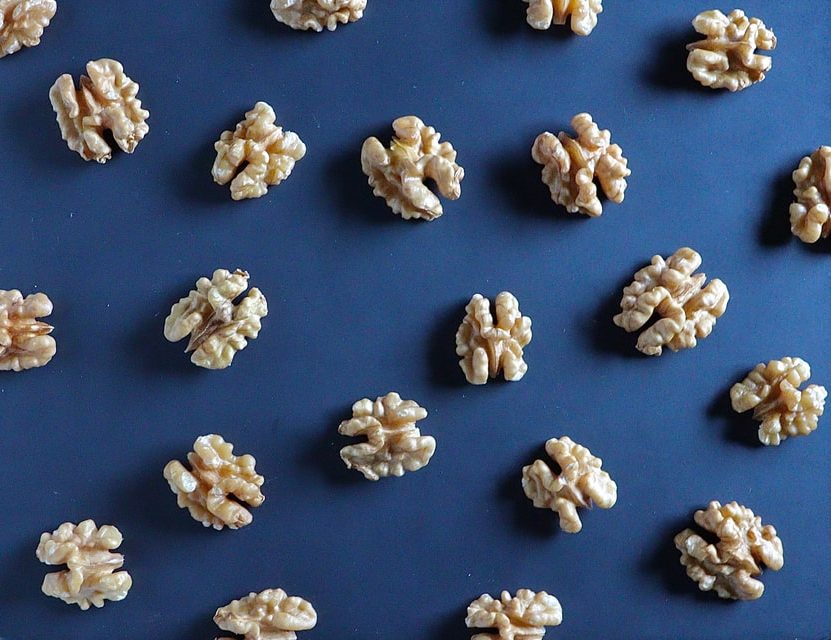
LDL vs. HDL Cholesterol
I don’t have to tell you LDL is known as “the bad cholesterol” while HDL is “the good cholesterol”, you already knew. But what’s the difference? Lipoproteins have a ratio of lipids to proteins. The denser the cholesterol, the more protein (and less fat) there is. This is why HDL is the High-Density Lipoprotein because it has more protein. This is a good thing because too much fat can accumulate and cause plaque (problems) and inflammation.
The function of lipoproteins (LDL, HDL) is to transport cholesterol, triglycerides, phospholipids (basic fats) from the liver to peripheral tissues. (6) (7)
HDL, LDL, VLDL, IDL Cholesterol
HDL
LDL
VLDL / IDL
HDL, or “the good cholesterol” is denser, hence the name High-density Lipoprotein, and more efficient in transporting cholesterol. It is associated with a reduced risk of cardiovascular disease, and many people would benefit from raising HDL, the good guy.
LDL, known as “the bad cholesterol” has less protein and more fat. It is less efficient in transporting cholesterol, hence why it can accumulate in the arteries. On top of that, it is more prone to oxidation, and oxidized LDL leads to inflammation. That’s why it’s the bad guy.
Then there are the VLDL, or very low-density lipoproteins, and IDL or intermediate-density lipoproteins. These two carry more fat and can accumulate in the arteries, increasing inflammation and plaque formation.
This being said, to live longer and have a better functioning brain, you’d want to improve cholesterol ratio, meaning increase HDL and reduce LDL cholesterol.
Which foods can do this? We’ll look at saturated vs. unsaturated fats, to debunk some myths, and also bring up the importance of consuming olive oil, avocado and flax seeds, instead of doughnuts and bacon strips, sorry.
Saturated vs. Unsaturated Fats for Brain
Although saturated fats have been demonized in the past, they’re essential. A good nutritious diet needs to have monounsaturated, polyunsaturated and some saturated fat too. The enemy you want to avoid is trans fat.
There are many fatty foods full of healthy fats, which contain saturated fats. Grass-fed beef, red meat, whole-dairy, raw milk and hard cheese, grass-fed butter, coconut oil are just a few examples. Even avocados and eggs have saturated fat, tell me that’s unhealthy.
Indeed, you’d not want to overdo your saturated fats. Focus more on unsaturated fats to protect against inflammation and oxidative stress.
The American Heart Association recommends aiming for 5-6% of calories from saturated fat. (8)
Many experts believe if you get your saturated fats from healthy sources *foods above, going above the 5% mark can be healthy and beneficial. Of course, there will be no place for pastries, cakes, cookies, and red processed meats.
Science supports the potential benefit of omega 3 fatty acids, for improving cardiovascular health, reducing inflammation, reducing high blood pressure and cholesterol. (9) (10)
DHA and EPA, also omega 3’s have shown beneficial for immunity, development, reducing inflammation, cardiovascular health, etc. They are considered potent antioxidants, and omega 3’s are essential fatty acids. (11)
Pro Tip
To increase your omega 3 levels, eat more seafood, olive oil and flax seeds.The best dietary sources of omega 3’s are seafood, so fish, mackerel, herring, tuna, crab, shrimp, salmon, and sardines. Also, avocados, olive oil, olives, and flax seeds are pretty rich too. Nuts and seeds, especially walnuts, flaxseeds, and flaxseed oil, chia seeds are great options too.
Trans Fats – Unstable Fats
Now for the enemy. Trans fats – unstable fats. This means they oxidize quickly and become toxic. This increases inflammation and oxidative stress in the body. It is detrimental to your heart health, brain health, metabolism, and many physiological functions. It accelerates aging, causes DNA damage, increases LDL and lowers LDL cholesterol, etc. (12) (13) (14)
The trans-fat foods you want to stay away from are: French fries, margarine, baked or frozen goods like pizza, cookies, pies, microwave popcorn, processed and dried red meat (salami, hot dog, bacon, sausage), doughnuts, deep-fried foods, mozzarella sticks,… you get the point. (15) (16)
Summary
Unsaturated fats like omega 3 are beneficial for heart health, brain performance, and fighting inflammation. Eat your avocado, flax seeds, seafood, and nuts. Saturated fat is essential, but there are both healthy and unhealthy saturated fats. Aim for options like grass-fed beef and butter, whole milk, hard cheese, and coconut oil. Trans fats are unstable fats that increase inflammation and have negative effects on heart and brain health. Stay away from margarine, red processed meats, cookies, pastry, baked or frozen pizzas, pies, doughnuts, French fries, and deep-fried foods.
Brain Aging, Neurodegeneration, and Neuroprotection
As we age, our brain does too. Oxidative stress and chronic inflammation in the brain accelerate neurodegeneration. This translates to poor brain performance, which over time develops into Dementia, Alzheimer’s, and other neurodegenerative diseases.
Healthy fats, especially omega 3’s which we can get from food, seem to play an important role in brain function, but also provide potential neuroprotection.
Increasing dietary fats, especially omega 3’s can potentially improve brain function. Combined with exercise and antioxidants, research shows healthy fats (dietary) can help with the maintenance of physiological conditions, even during metabolic stress. (17)
Research has shown that in some preclinical models, DHA which is an important omega 3 FA was shown to: (18)
- increase Brain-Derived Neurotrophic Factor (BDNF), which plays important role in maintaining brain integrity, and neuron growth, and differentiation maturation.
- act as a potent antioxidant, and reduce brain inflammation
- have neuroprotective and anti-apoptotic effects
- improve blood flow, circulation in the brain, which means more oxygen and energy, less plaque.
EPA/DHA, Caloric Restriction and Exogenous Ketones
Caloric restriction has also shown potential effects in neuroprotection and brain aging, as it stimulates autophagy. This helps with the removal of dysfunctional brain cells and accumulated plaque in the brain. Partially, high fat low-carb diet is a type of sugar-fasting.
- Some of the reasoning behind incorporating more healthy fats into one’s diet to save or preserve the brain is their anti-inflammatory properties. Reduced risk of Alzheimer’s or Parkinson’s disease is associated with a higher intake of omega 3 FA’s. (19)
- EPA, DHA, and DPA have an important role in brain function. Research shows that EPA and DHA deficit is linked to neurodegenerative diseases. (20)
- Although more research is needed for individual roles of all three fatty acids, so far, it’s quite obvious that EPA and DHA have beneficial effects on the brain.
- Adding exogenous ketones, which enhances our ability to shift in ketosis faster, has also shown potential benefits for neurodegeneration. (21)
summary
Healthy fats, like omega 3 have shown their potential in neuroprotection. Better brain blood flow, reduced accumulation of plaque, lower inflammation, memory support, and maintaining the structural integrity of the brain. DHA is also a very important Omega 3 FA, which may also increase BDNF.

Alertness, Mental Clarity and Focus
The brain runs both on glucose and fats. Glucose is used as a primary source, when there isn’t enough, the brain uses ketones. This is the keto-fueled brain. Some say keto may improve brain health and function, and in some aspects, this is true.
As seen in eMetabolic, most people state that the keto diet or high-fat low-carb eating improves mental clarity, energy, focus, and alertness. (22) But is this true?
Ketone Fuel, Mitochondria and Cutting Sugar
Ketones will be more energy efficient as a source of fuel for the brain, compared to sugar. Simply put, per unit of oxygen we get more energy by burning ketones. Seems logical since 1g fat equals 9 kcal, and 1g carbohydrates equals 4 kcal.
A Keto diet is known to improve mitochondrial function in the brain. If you didn’t know, these are your “energy power cells” where energy is produced. It seems that using ketones supports brain metabolism and helps improve cognitive function, such as memory. (23)
Now it’s important to note, that some of these benefits will come with cutting sugar all along. You don’t necessarily have to be in ketosis for all the benefits. Fasting from processed sugar, and increasing your healthy fats intake, maybe in a less restrictive diet like LCHF or Paleo, can still come with some potential effects.
Why? Because excessive sugar consumption causes metabolic issues in the brain, and increases oxidative stress and inflammation which increases the risk of Dementia and other neurodegenerative diseases. (24) (25)
MCT, Keto vs. Glucose Brains and Memory
Keto diet, specifically MCT or medium-chain triglycerides (which help us get into ketosis faster) has been shown beneficial in diabetic patients for cognitive performance. (26)
- In people with mild cognitive impairment, the keto diet enhanced cognitive function, partially due to improved energy metabolism (fuel) and its anti-inflammatory properties. (27)
- When glucose metabolism is dysfunctional, brain performance and energy will be reduced. Shifting towards ketones in such cases, had positive effects on inflammation, oxidative status, and energy. (28)
Keto-fueled brains aren’t superior to Glucose-fueled brains, they just may be better at different things. While the brain that runs on glucose may be faster, sharper, have better short-term memory, and perform better under stress, the keto-fueled brain has higher energy stability and efficiency, improved learning and alertness, and less inflammation.
Keto-fueled brains are better at removing excess glutamate, and converting it to glutamine. Glutamate is an excitatory neurotransmitter; it hinders GABA, an inhibitory neurotransmitter. If so, the keto brain can fight stress, prevent hyperexcitation and improve focus. (29)
In terms of memory, in people with mild cognitive impairment ketosis improved verbal memory performance, plus there was a correlation between higher ketone levels and memory performance. (30)
summary
Keto-fueled brains are better at removing excess glutamate, which prevents overstimulation. Ketones provide more efficient and stable energy for the brain. Low sugar can reduce brain inflammation and oxidative stress. Keto diet was also shown to improve memory in people with mild cognitive impairment, partially by improving energy metabolism. Nonetheless, when it comes to alertness and energy stability, in bodies adapted to ketosis, keto brains win.

Nutrients for Brain Health
Many nutrients can support brain function, improve blood flow and reduce inflammation. These are some of our favorite brain-supporting nutrients found in fatty foods.
Note
Many foods like coffee, blueberries, and broccoli are also great for brain health although they didn’t make it on the list. We’ll be focusing on fatty foods, foods rich in healthy fats.
Choline
EPA /DHA Omega 3
B Vitamins
Vitamin K and E
- Choline is a very important nutrient that supports brain and liver function. It is required to produce acetylcholine, an important neurotransmitter involved in neural signaling (contractions, hormone secretion, vasodilation..) Choline is also involved in DNA synthesis and fat transport.
- Your liver can synthesize small amounts of choline, but as an essential nutrient, you shall obtain it from your diet. Best way to do it? Eat more choline-rich foods. Foods rich in choline are eggs, especially egg yolks. Organ meats, especially liver and kidney. Seafood, fish, and caviar. Some dairy like cottage cheese and low-fat milk.
- EPA and DHA are omega-3 fatty acids. Omega 3 supports brain function, they are involved in building nerve cells, and maintaining the structural integrity of the brain. Omega 3 FA’s also act anti-inflammatory and are associated with better cognitive performance. Memory, focus, energy, you name it.
- Besides protecting from oxidative stress, they can also improve blood flow in the brain which helps remove plaque accumulation. This is why in some cases, these healthy fats can help reduce the risk of neurodegeneration and exert potent neuroprotective effects.
- The richest source of omega 3 is seafood. Crab, lobster, herring, mackerel, salmon, sardines, pick yours. The next best choices are avocado (oil) and flax seeds (oil), many nuts and seeds, especially walnuts, hemp, and chia seeds, and algae like chlorella, spirulina, and seaweed. Oh, and don’t forget the Mediterranean superhero, olive oil, and olives.
- B vitamins can be consumed in foods, but there are also great supplements that contain the full B-complex spectrum. They are essential, water-soluble vitamins that play important role in body and brain development.
- Niacin (B3) for example helps turn food into energy, B6 is important for sleep, neurotransmitters, and memory, and B9 assists in the creation of red blood cells, growth, and RNA & DNA synthesis. Simply put, B vitamins are very important for overall health, well-being, growth, and development. It keeps your brain running.
- The best dietary sources of B vitamins are animal products, like dairy and meat. We are talking eggs, yogurt, whole milk, chicken, turkey, hard cheese, red meat, shellfish, beef. And oh, don’t forget the leafy greens. Kale, Spinach, Collard greens, you get it. Guess what’s the richest source? Organ meats, especially liver, which is packed with B vitamins.
- Vitamin K and E are both fat-soluble vitamins, meaning we need fats to dissolve and absorb them. This goes hand in hand with a keto diet.
- Vitamin K helps with blood clotting and regeneration and plays important role in maintaining strong bones. On the other hand, vitamin E is a potent antioxidant known to benefit skin health, fight inflammation and protect from oxidative stress.
- My favorite vitamin E and K-rich food is Avocado. Green leafy vegetables, peanuts, pumpkin, almonds, eggs, and fish are some other great sources.
Conclusion
- Healthy fats are crucial for optimal brain health and function. They maintain the structural integrity of the brain, are involved in cell signaling, reduce inflammation, improve blood flow and help with neurotransmitter release.
- While trans fats like processed sugars and meats are detrimental to you, some saturated fats (grass-fed beef and butter, raw milk, coconut oil, salmon) are good for you and support your brain health.
- The absolute winner that has shown neuroprotective and cognitive-enhancing effects are unsaturated, omega 3 fatty acids (EPA, DHA, ALA).
- Eat your avocados, olive oil, flaxseeds, grass-fed beef, chicken, walnuts, eggs, and most importantly, seafood (salmon, crab, herring, mackerel).

